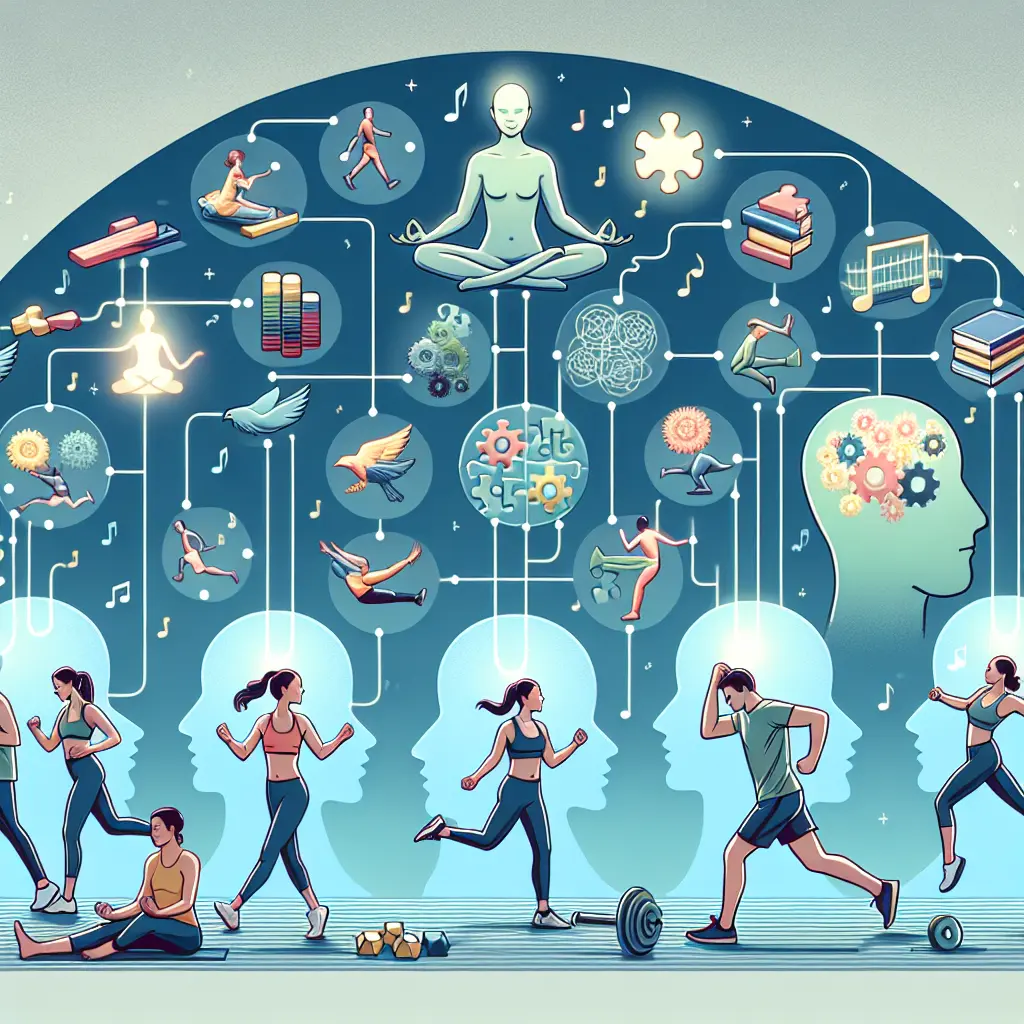
In our bustling modern world, the quest for mental clarity and peak cognitive function is more relevant than ever. Amidst the cacophony of daily responsibilities and digital distractions, regular exercise emerges not only as a sanctuary for physical health but also as a potent enhancer of mental acuity. Let’s explore how integrating physical activity into your routine can significantly sharpen your mental faculties and overall well-being.
The Cognitive Connection to Regular Exercise
Scientific studies consistently underscore the profound impact of exercise on brain health. Engaging in regular physical activity is shown to improve cognitive function, with benefits ranging from enhanced memory and attention to better problem-solving abilities (source: American Journal of Preventive Medicine). This is largely attributed to the increased blood flow to the brain during exercise, which supports neuronal health and encourages the growth of new brain cells.
Unpacking the Mental Health Benefits of Exercise
Physical activity is a powerful mood lifter and stress reliever. It stimulates the release of endorphins, often referred to as the body’s natural painkillers and mood elevators. This biochemical process is crucial for enhancing mental health and is a key factor in the reduction of anxiety and depression symptoms. The psychological benefits of exercise include a heightened sense of well-being and resilience against stressors, making it a vital component of mental health maintenance.
Exercise and Mental Performance: A Symbiotic Relationship
The link between fitness and cognition can be observed through improved concentration and sharper alertness in individuals who partake in regular exercise routines for mental clarity. According to recent research, even short bouts of physical activity can lead to significant enhancements in mental performance, particularly in decision-making and learning processes (source: Journal of Cognitive Neuroscience).
The Impact of Exercise on Brain Health Over Time
Long-term engagement in physical fitness activities is associated with a decreased risk of cognitive decline and neurodegenerative diseases such as Alzheimer’s. This is partly due to exercise’s role in maintaining brain volume and fostering a rich network of brain cells interconnected by synapses (source: Neurology).
Tailoring Exercise Routines for Mental Clarity
To maximize the cognitive benefits of exercise, incorporating a mix of aerobic exercises, strength training, and flexibility workouts is ideal. Activities like yoga and tai chi not only improve physical fitness but also enhance mental focus and mindfulness.
Practical Examples and Current Trends
Reflecting on recent societal developments, there's an interesting proposal by RFK Jr., suggesting that individuals on antidepressants could benefit from time spent at ‘Wellness Farms’ where physical activity would be a key component of ‘reparenting’ strategies (source: Wellness Magazine). Such innovative approaches underscore the growing recognition of exercise as integral to mental health interventions.
Moreover, the rise of tech-driven wellness solutions like robo-relaxation tools in gyms or hotels points towards a future where technology and physical fitness intersect to promote brain health (source: TechCrunch). These advancements highlight the evolving landscape of exercise routines and their applications for enhancing mental clarity.
The Broader Benefits Landscape
The societal and individual benefits of exercise extend beyond personal well-being. For instance, transforming spaces like partially constructed buildings into vibrant public preschools not only repurposes physical infrastructure but also promotes community health through active spaces (source: Urban Development Review).
Furthermore, wellness-focused promotions, such as those seen with Amazon Prime Day 2024 or at GNC, indicate a growing consumer awareness and market for products that support an active and healthy lifestyle, underscoring the widespread acknowledgment of the benefits of exercise.
Personal Stories and Societal Reflections
Personal journeys also reflect the impact of physical activity on mental clarity. For instance, a 78-year-old doctor attributes his youthful vigor to adherence to specific diet principles combined with regular exercise (source: Healthline). Additionally, individuals coping with grief or personal loss have found solace and presence in improving their work life through enhanced focus derived from physical fitness routines (source: Psychology Today).
Conclusion
The myriad benefits of regular exercise transcend mere physical health. They embed deeply into our cognitive functions and psychological well-being. From enhancing mental clarity and performance to reducing stress and combating depression, the role of physical activity in fostering a healthy mind is indisputable.
As we continue to navigate a complex world, let us lean into the rhythms of regular exercise—not just as a routine but as a lifeline to clearer thinking and better living. Let's embrace physical activity not only for what it does for our bodies but for how it transforms our minds.
Stay active, stay sharp.
Vanessa Doyle